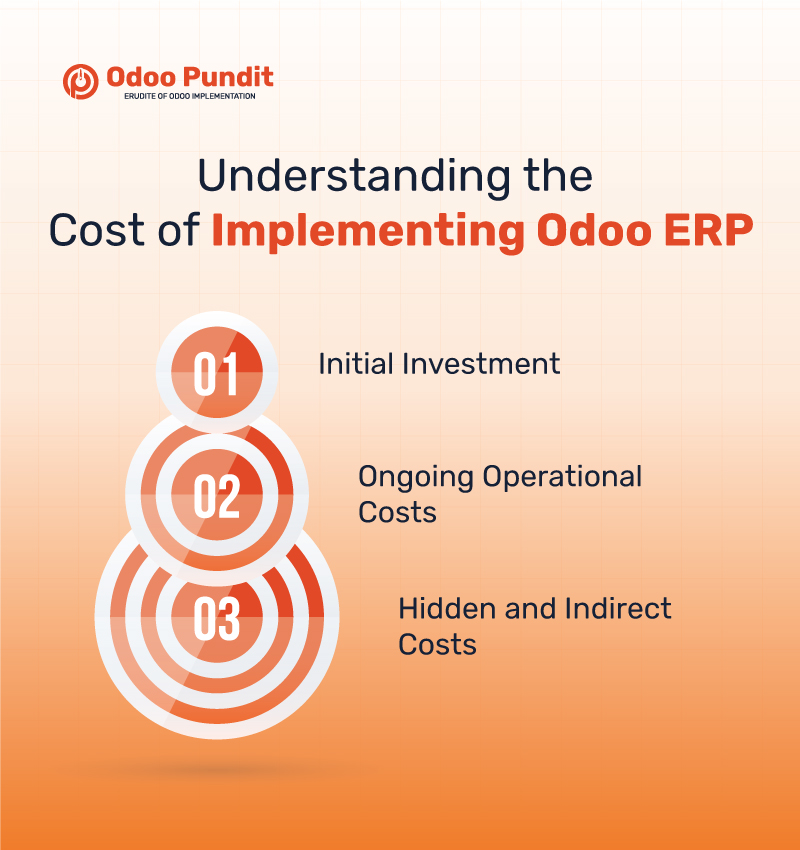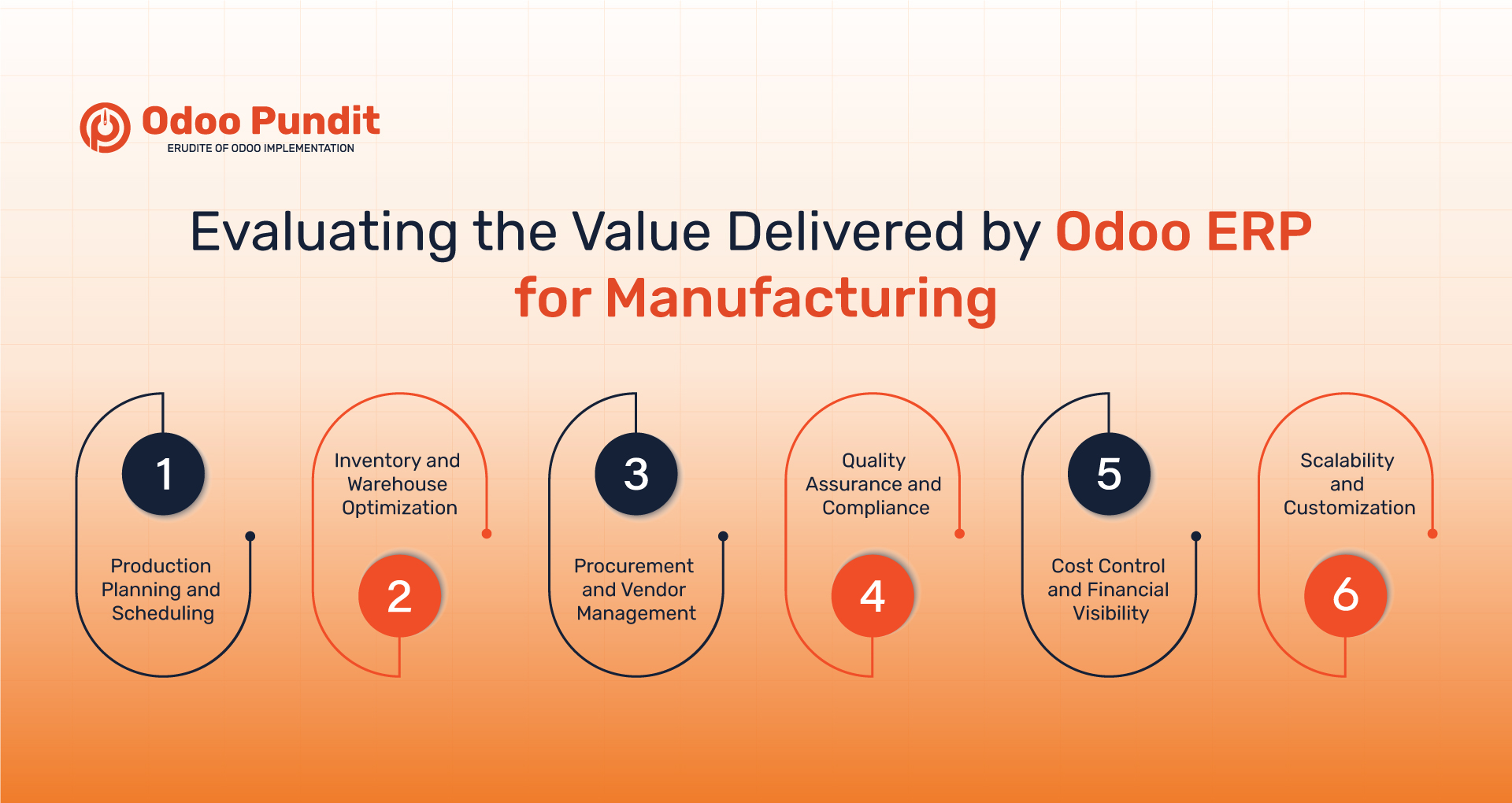Introduction
Is your manufacturing operation struggling to keep up with rising complexity? You’re not alone. According to industry reports, many manufacturing companies face challenges managing supply chains, production schedules, and quality control, all while trying to stay competitive in a fast-evolving market.
The truth is, relying on outdated or fragmented systems can slow down processes, increase costs, and limit growth potential. That’s why smart, scalable ERP solutions are becoming essential for manufacturers aiming to streamline operations and make data-driven decisions.
But here’s the question: Is the cost of implementing Odoo ERP for manufacturing companies truly justified by the value it delivers? In this blog, we’ll explore how modern ERP systems like Odoo help manufacturers overcome operational hurdles and drive long-term success.
Challenges Faced by Manufacturing Companies
Many manufacturing companies continue to operate with disconnected systems without fully realizing how these limitations impact their efficiency and growth. Recognizing these challenges early allows you to take proactive steps before they become critical bottlenecks.
Here are some key challenges manufacturers face today:
- Operations across procurement, production, inventory, and sales are often fragmented, leading to misalignment and communication gaps.
- Rising costs for raw materials and labor make managing budgets and margins increasingly difficult, while maintaining consistent quality remains a constant struggle.
- The pressure to deliver products faster, at lower costs, and with higher quality demands more agile and efficient processes.
- Many manufacturers still lack the digital transformation and real-time data insights needed to make informed, strategic decisions.
Addressing these challenges with smart ERP solutions can pave the way for smoother operations and sustainable growth.
Understanding the Cost of Implementing Odoo ERP

Implementing Odoo ERP involves several cost factors that manufacturing companies must consider carefully to understand the full investment and its long-term impact.
1. Initial Investment
The initial cost includes Odoo licensing, choosing between the free Community edition and the more feature-rich Enterprise version. Beyond licensing, implementation costs cover consulting fees, customization tailored to your unique workflows, and data migration from legacy systems. These steps ensure your ERP setup fits your manufacturing operations perfectly.
2. Ongoing Operational Costs
After go-live, operational costs come into play. This includes maintenance and technical support to keep the system running smoothly. Hosting options vary, from Odoo.sh cloud hosting to on-premise or third-party cloud providers. Employee training and onboarding are vital investments to empower your team with the skills needed to maximize ERP benefits.
3 Hidden and Indirect Costs
Be aware of potential hidden costs such as downtime during the transition period, which can temporarily impact productivity. Internal change management efforts are required to align your staff with new processes. Additionally, integrating Odoo with third-party tools or existing legacy systems may incur extra expenses, depending on the complexity.
Understanding these cost components helps you compare Odoo ERP cost vs. value more effectively and plan your budget with clarity.
Evaluating the Value Delivered by Odoo ERP for Manufacturing

Now, let’s break down the tangible value Odoo ERP brings to manufacturing companies through its feature-rich, modular design tailored for core workflows.
1. Production Planning and Scheduling
Odoo provides real-time tracking of work orders, comprehensive Bill of Materials (BoM) management, and dynamic production routing. These features help minimize bottlenecks by automating planning, enabling manufacturers to meet deadlines and optimize throughput efficiently.
2. Inventory and Warehouse Optimization
Gain real-time visibility into inventory levels across multiple warehouses. Automated replenishment rules reduce stockouts and overstock situations, while barcode integration streamlines warehouse operations, increasing accuracy and speed.
3. Procurement and Vendor Management
Odoo automates purchase requests and vendor quotations, helping manufacturers issue smart RFQs and manage supplier relationships with a vendor rating system that ensures you work with the best partners.
4. Quality Assurance and Compliance
Maintain high standards with in-process quality checks and monitor compliance with industry standards such as ISO and GMP. Quality alerts integrate seamlessly into your manufacturing workflows to catch issues early and maintain product excellence.
5. Cost Control and Financial Visibility
Track costs in real-time for each batch or job, allowing for accurate cost accounting. Integration with Odoo’s accounting module offers insights into production costs, premium invoicing, and financial reporting, enabling tighter budget control.
6. Scalability and Customization
As your manufacturing needs evolve, Odoo grows with you. Easily add or remove modules to match business demands. With Odoo Studio’s low-code customization tools, you can quickly tailor processes without lengthy development cycles.
By aligning these features with your manufacturing goals, Odoo ERP benefits for manufacturing companies become clear: smart ERP solutions that improve efficiency, reduce waste, and provide actionable insights for growth.
Odoo ERP vs Traditional/Legacy ERP Systems
As manufacturing businesses grow, legacy ERP systems often struggle to keep pace with operational demands, resulting in inefficiencies and inflated IT budgets. This section breaks down why smart ERP solutions like Odoo are becoming the go-to choice for modern manufacturers.
Total Cost of Ownership (TCO) Breakdown
Traditional ERP systems usually come with high licensing fees, rigid infrastructure, and recurring maintenance contracts that accumulate hidden costs over time. In contrast, Odoo offers a modular pricing model, flexible deployment (on-premise or cloud), and lower support overhead, making the TCO significantly more manageable.
Flexibility, Upgradeability & User Experience
Legacy systems are typically monolithic and hard to upgrade. Odoo, however, is designed with modular architecture, making it easier to scale, customize, and adapt without deep technical dependency. The user interface is also modern and intuitive, reducing the learning curve for staff and improving day-to-day usability.
ROI Realization Timeline
While traditional systems may take years to show financial returns due to long implementation cycles and high upfront costs, Odoo ERP delivers faster ROI. Manufacturers benefit from quicker deployment, shorter training periods, and early operational wins, making it easier to justify the investment.
If you're wondering “Is Odoo ERP worth it for manufacturers?”—these comparative insights offer a clear answer: It’s not just worth it; it’s a smarter, future-ready investment.
Real-World Value: Case Studies and ROI Examples
Let’s take a closer look at how Odoo ERP delivers tangible business value in real manufacturing environments. Here’s a success snapshot of how one manufacturer transformed operations with Odoo.
Case Study: Transforming Operations with Odoo ERP
Industry: Automotive Components
Previous State:
- Multiple siloed systems for inventory, sales, and production
- Poor visibility into order timelines and inventory levels
- Frequent delays in production due to misaligned procurement cycles
Odoo Implementation:
They partnered with an Odoo Pundit to streamline core processes. They adopted modules for Manufacturing, Inventory, Purchase, and Accounting, integrated with custom dashboards for real-time KPIs.
Results After 6 Months:
- Order Cycle Time: Reduced by 38% through automated production planning
- Inventory Holding Costs: Dropped by 25% with real-time tracking and replenishment rules
- Downtime: Decreased by 41% due to better scheduling and quality alerts
- Decision-making Speed: Improved by 50% with consolidated reporting across departments
These results reinforce that the Odoo ERP investment for manufacturing is not just about implementing software, it’s about reshaping operations for efficiency, agility, and sustained growth.
Who Should Consider Odoo ERP in Manufacturing?
Modern manufacturing isn't just about machines, it's about managing complexity, speed, and scale. Odoo ERP is ideal for manufacturers aiming to move beyond outdated systems and embrace intelligent operations.
Here’s who benefits the most:
Small & Medium Manufacturers with Growing Complexity
If you’re scaling fast and juggling production, inventory, and supply chain workflows, Odoo helps unify operations under one roof, without the heavy costs of legacy ERP.
OEMs & Contract Manufacturers with Diverse Product Lines
For manufacturers dealing with multiple product variants, custom BOMs, and high customer expectations, Odoo’s modular system ensures flexibility and traceability across every project and production cycle.
Businesses Stuck in Legacy or Siloed Systems
Still using spreadsheets or standalone tools for inventory, accounting, and production? Odoo ERP brings all core processes into one platform, improving visibility, coordination, and decision-making.
Why Odoo for Modern Manufacturing?
Modular and scalable for growing manufacturers
Seamless integration across functions
Strong community and long-term cost advantage
Whether you're upgrading from manual systems or migrating from a bulky ERP, Odoo offers a smarter path forward.
Conclusion:
Adopting Odoo ERP is a smart move for manufacturers looking to streamline operations, cut unnecessary costs, and stay competitive in a rapidly evolving industry. With its modular architecture, modern UI, and lower total cost of ownership, Odoo delivers real value, especially when compared to traditional, bulky ERP systems.
The real power of Odoo lies in its flexibility and ability to scale with your business. Whether you’re a growing SME or a complex OEM, Odoo helps improve productivity, reduce waste, and deliver faster ROI. It’s all about choosing a solution that fits the way you work, without forcing you into a one-size-fits-all system.
That said, implementing ERP isn’t a plug-and-play situation. It takes the right planning, the right partner like Odoo Pundit, and a clear understanding of your manufacturing processes to get it right.
Looking to assess if Odoo ERP fits your manufacturing needs?
Let our experts guide your ERP journey, from planning and customization to a successful go-live and beyond.